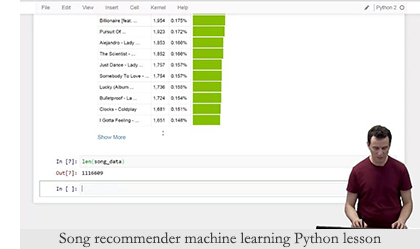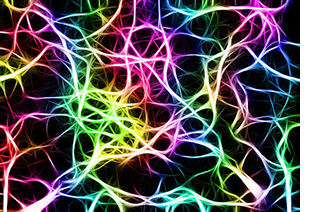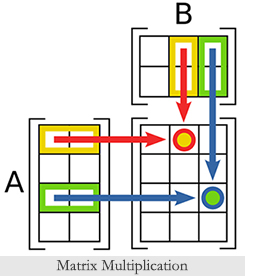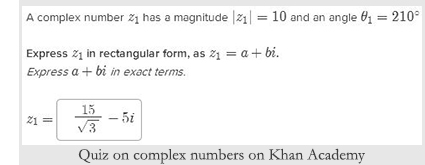TWO COURSES COMPLETED
TWO COURSES COMPLETED
This week, I completed Machine Learning Foundations from The University of Washington on Coursera and precalculus on Khan Academy. I got through both of those classes much quicker than I had expected, which is fantastic, but I don’t believe that will be the case for future classes.
I have no recollection of calculus whatsoever, so I feel as though it will be like taking it anew. I’ve read some people find precalculus more difficult. I can’t remember how I felt way back then, but the concepts are only going to become more challenging, which will be more time consuming.
As far as my Machine Learning Specialization, the first class was only a basic introduction to what we’ll be learning. We’ll be learning how to create algorithms in future classes, which we haven’t done yet, so I doubt I’ll be able to fly through the next classes. However, I am excited for what I’ll be learning!
Machine Learning

The first course of the Machine Learning Specialization was fantastic! I can’t say enough good things about it. The professors were great, the introduction to Python and machine learning was intuitive and educational, and it presented a number of concepts that are useful in the field.
Before we started a new programming lesson, it always begins with, “This is going to be cool.”
I love that! It gets you excited for what you’re about to learn, instead of, “Today I will show you how to read a blah blah blah.” I hate when instructors start classes that way. I don’t think I want to read a blah blah blah, and I certainly don’t want to spend a lot of time learning how to read one.
I joke, but the way an instructor teaches a course is almost as important as the course material. I’ve been lucky with the Massively Open Online Courses (MOOC) I’ve taken thus far, but I have had incredibly dry professors in the past.
Carlos Guestrin was showing us a bunch of pairs of shoes he owns before getting into the visual recommender lesson, when you hear Emily Fox in the background say, “We get it, you have a lot of shoes.” Their dynamic is hilarious and it makes the class a lot of fun.
For the final two weeks, we studied recommenders and deep learning.

We first created a simple song recommender based on music preferences and popularity. We used a dataset of around 1 million songs with the number of listens by each user. Using the dataset, we could also recommend songs based on a specific song, similar to music apps like Pandora.
The professor used a few examples to show how it worked and suggested we try it out on our own. I absolutely love music (constantly listening to something or have songs in my head), so I was pretty excited to look up a few songs that I enjoy. None of them were in the dataset. . .
Apparently I don’t listen to very popular music. Although I’m unsure of how old the dataset is or if it’s limited to specific genres or popularity. It’s still really cool, but I was disheartened that none of my music was present.
We then studied deep learning and deep neural networks. I was really looking forward to learning this aspect of machine learning.
Deep learning is an incredibly complex subject and we only touched on it during our final week. There are many more layers of algorithms involved in deep learning. It is an intelligent system that can “learn” from large and complex datasets. It can be used for tasks that are impossible for a human to do by hand.
Deep neural networks are one of the architectures of deep learning, which can be used for computer vision (identifying images), scene parsing (identifying buildings, trees, roads, etc), voice recognition (Siri, Cortana, etc.), natural language processing, among other things.
Seeing the advancements in machine learning truly makes this an exciting time to be alive.
For the purposes of our lesson, we used deep learning features to attempt to identify the label of an image. With Google images and everything we’re exposed to these days, it may sound like an easy task, but it’s anything but. A complex algorithm had to be created to be able to say that a picture of a cat is actually a cat.
Since we aren’t creating any algorithms just yet, we used one created as part of a contest in 2012 to see how well it could label images in our dataset. I was impressed. I feel like a broken record, but I really am looking forward to learning this and other topics in depth as I get through the specialization.
I only have one problem with the Machine Learning Foundations course: one question on the second to last quiz. According to the forums, it has caused a lot of issues with other students over the months, but it hasn’t been updated. The question covers a topic that was never discussed in the lectures.
I technically passed the quiz even after answering that question incorrectly, but I’m still not happy about it. You see, it lowered my grade in the class to 99%. Yes, I’m one of those people! I’m sorry, but I can’t stand to see a 99% when I’m one question away from 100%.
On Coursera, you can retake a quiz three times every 8 hours until the deadline. I’m still three weeks ahead of the deadline, so I’ve been retaking it in an attempt to answer that question correctly. So far I haven’t, but I’m still working on it.
That said, I did receive my first course certificate, which is pretty exciting. It makes me feel as though I’m in university again and that makes me happy. Now, if I can only get 100% in the class, then I’ll be set!
Mathematics

I’m finally going to be taking a college-level math class again and I’m only such and such years old. Granted, calculus is taught in high schools in the states, but generally it’s taken at university when you’re on a standard public school math track. I’m assuming it’s taught in primary schools in other countries since their education system is so much better than ours.
Stop taking away my thunder here, okay? I’m finally done relearning high school math and it’s an accomplishment, dammit! I began with junior high school (Again, that’s public school in the states. I know private schools and schools in other nations are designed differently) math in May and finished the high school courses this week. Only six more math classes to go. . .
I think I took precalculus at the most opportune time in my machine learning studies.

The day I finished learning about matrices, we began using vectors and matrices in machine learning. It wasn’t a requirement to know the math she was discussing in this lesson, but it was definitely helpful to be familiar with matrix and vector multiplication. If you’ve never done this type of math, multiplying matrices isn’t as intuitive as you would imagine.
After matrices, we started learning more advanced features of complex numbers. If you’ve been following my journal, you’ll know I absolutely love imaginary and complex numbers. I can’t tell you why; I just think they’re fun and amazing.
I did have some issues with taking exponents of complex numbers at first. For some reason, I just couldn’t grasp how to convert it into other forms or solve for the angles. I had to work at it for a while until it suddenly clicked. Now I can continue loving complex numbers and all is right in the world of mathematics.
Side rant:
You get 850 energy points for watching each video on Khan Academy, or less depending on how much of a video you watch. The energy points don’t do anything in particular, but it is an accomplishment and shows how much you’ve done on the site.

Anyway, lately I’ve watched full lecture videos and consistently get partial credit even though I make it through the whole video. Unlike a normal person, who would ignore it and move on with their lives, I re-watch the lecture until I get my full 850 points. Because I earned them, dammit!
I don’t think this is Khan’s fault, as it’s no doubt my touchy, temperamental computer who likes to disconnect from the internet on a whim, but it’s getting irritating. As long as I literally have no programs or other webpages open, and I’m not running anything whatsoever, it’s usually not a problem, but it does still happen.
I feel that it slows down my coursework progress quite a lot, which is the biggest detriment. Again, I’m almost positive this is my computer’s doing and not a fault with Khan Academy. I just felt the need to mention it because my learning is being sabotaged. Or, at least the credit for what I’ve learned. If it starts erasing my mind, then we’d be having a serious problem with the robot revolution.
All of this to say I desperately need a new computer.
Conclusion
Thank you for your support! This is an exciting time and I’m really looking forward to everything that I’ll be learning in the near future. I can’t wait to study machine learning algorithms and understand the math behind them.
I hope you are all great and I’ll see you next week!

Author and hobby digital artist. Barry aspires to become a data scientist and better himself as a person.